Here's my story about learning a foreign language. I'm a bit long-winded on this topic, so if an essay isn't your cup of tea, please feel free to move on to today's Wordle.
50 years of Spanish
I enrolled in Spanish 91 at the University of Saskatchewan when I was eighteen and thought I would speak the language at the end of the year. People said it's the easiest language to learn. How hard could it be?
The class was easy, very basic, and my marks were good, but I wasn't anywhere even close to carrying on a conversation. And it got worse the next year. Concepts got trickier, hundreds of new words kept piling up, verb tenses and conjugations were overwhelming. You can't avoid the subjunctive bugaboo.
I took a break for three decades while I became an elementary school French teacher, had two babies and forgot all the Spanish I ever learned.
At the mature age of 54 I returned to my Spanish textbooks and signed up for classes in Oaxaca, Mexico. That's when I got hooked and the interest became embedded.
It's a long, tough slog to learn a foreign language as an adult. That I'm sure of. You learn some nice phrases and rules of grammar, and a few days later you forget them. You relearn them and forget parts of them. You doubt your ability and damn your memory. On and on.
If I had lived in a truly immersion environment for a year things would have been easier and faster, but I never managed that.
Before you think the process is masochistic, I have to say learning Spanish is incredibly interesting and although my progress hasn't been miraculous, it's been decent.
I was fascinated first by pig latin, then spent the next 56 years learning French and Spanish. I've left the French aside, but by sheer will-power and patience I've pushed along the winding road of Spanish and now at age 70 have found a pleasant degree of success.
I'm good at the easy stuff and the intermediate parts, but am still working to make tougher, long sentences come to me when I call. Basic Spanish is quite easy, the hard stage is clawing your way out of "Intermediate Purgatory," the phrase an on-line teacher named Nacho uses to describe the place where many of us get stuck. You can communicate ok, you use Spanish words, but you still struggle with natural Spanish sentence structure. It's not easy getting past this point.
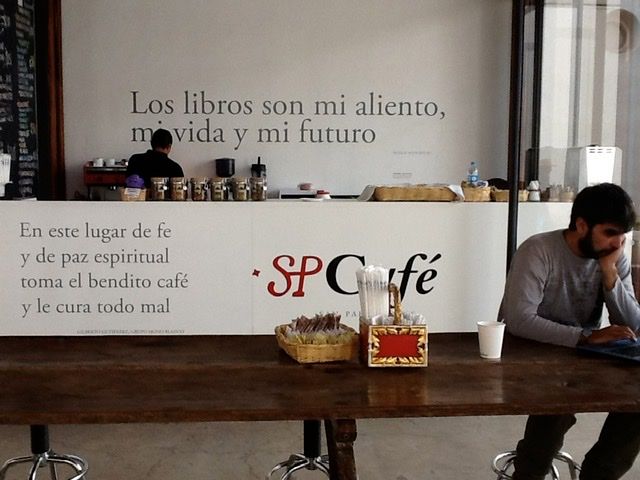
So what does it mean exactly to be Fluent in a language?
As a life-long language learner I've always wondered about that. Where is the point in the spectrum where you can call yourself Fluent? When is the jig-saw puzzle finished?
Is it when you sound like a native speaker? Unless you live long-term in a truly Spanish environment, most of us won't get to that point in a hundred years.
Is it when you understand everything native speakers are saying? That's not easy when they use slang, maybe dialect, and informal short-cuts.
I don't call myself Fluent, and expect I never will.
But carrying on normal conversations about ordinary topics? That I can do all day. So I'm satisfied, even proud, of what I've accomplished in Spanish.
I regularly read news articles in El Times, the New York Times Spanish Edition. I usually understand 95% of the content and still get a little buzz of surprise that I can do it.
Reading has always been easier that speaking, as is the case for most of us who learn from books instead of on the job or on the street.
My ear is finally adjusting, which is one of the hardest skills, and I can enjoy Spanish Netflix without subtitles and understand much, though not 100%, of the dialogue. If I'm dumbfounded and curious enough to take the time, I go back and turn on the Spanish subtitles for a few lines, but not the English. And maybe practise saying the lines if I'm in the mood. Dave is used to hearing me mumble quietly as I'm watching an episode.
I've watched Netflix series such as Las Chicas del Cable, La Cocinera de Castamar, La Casa de las Flores, if you want to give them a try.
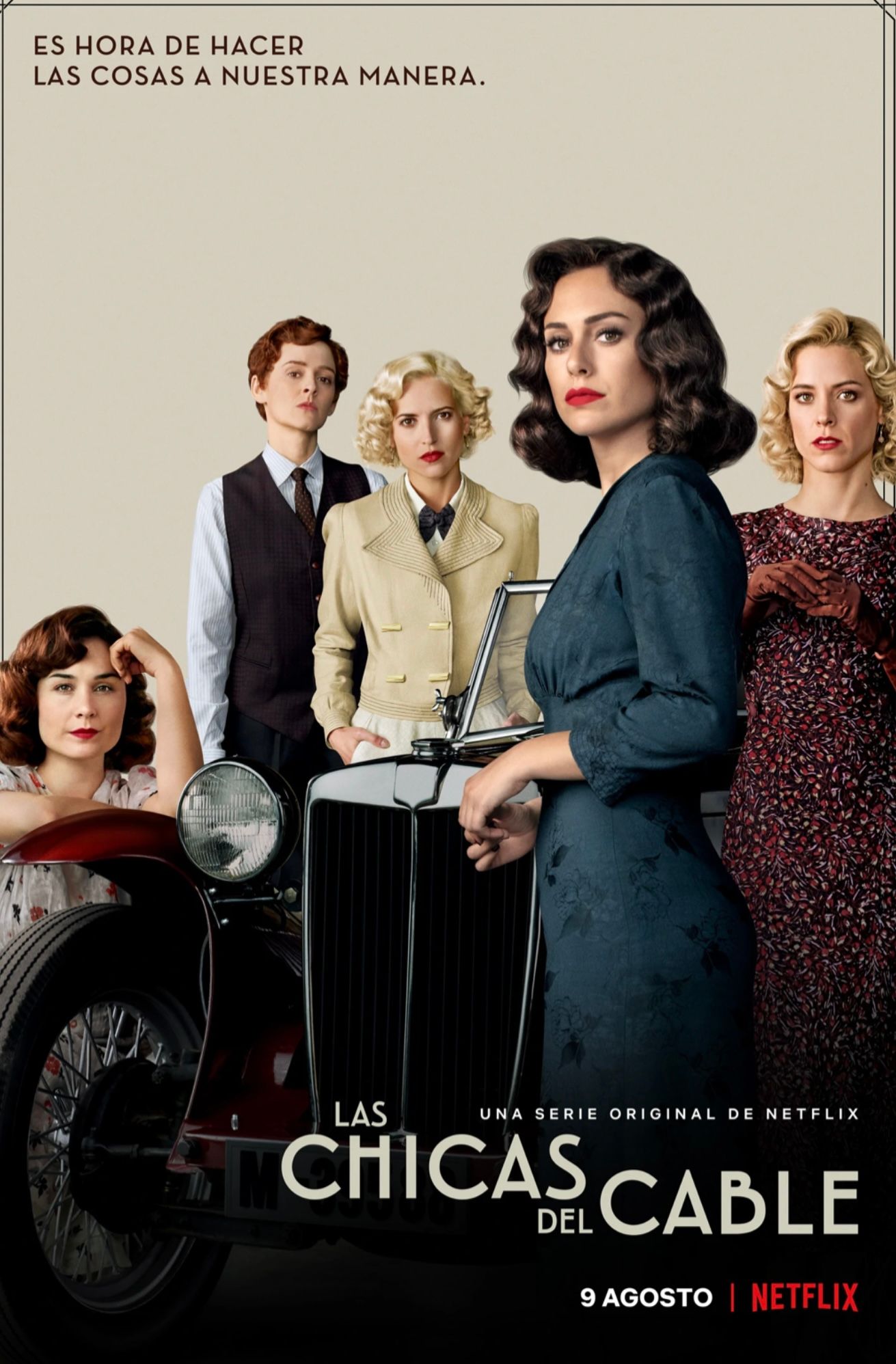
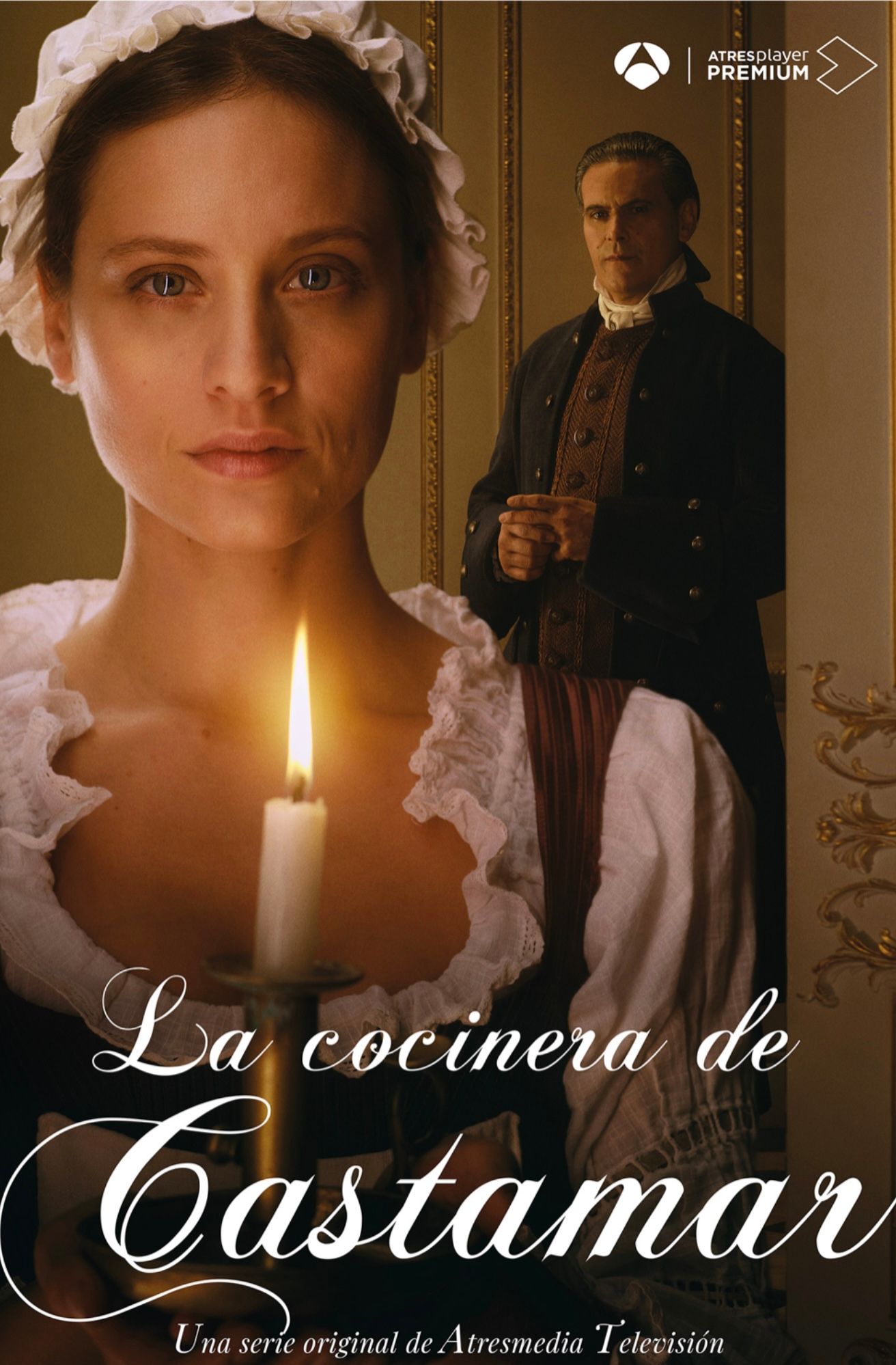
I have a good grasp of Spanish grammar and secretly enjoy mulling over verb tenses.
There's more past tenses than you might realize in a language. For example, here are eight choices for the verb "to give", each one expressing a specific meaning in the Past, never mind Present and Future.
What's an automatic decision for native speakers can take some serious head-scratching for a language-learner. Have a look at this.
di - I gave
he dado - I have given
daba - I used to give
había dado - I had given
haya dado - I may have given
habré dado - I will have given
habría dado - I would have given
hubiera dado - I would have given but I didn't
So that's why I've been studying Spanish for so long! You could get by using only one past tense of course, but it would sound awkward and confusing, which is fine if you have limited time and interest, or if grammar isn't your thing.
Personally, I like the details of language.
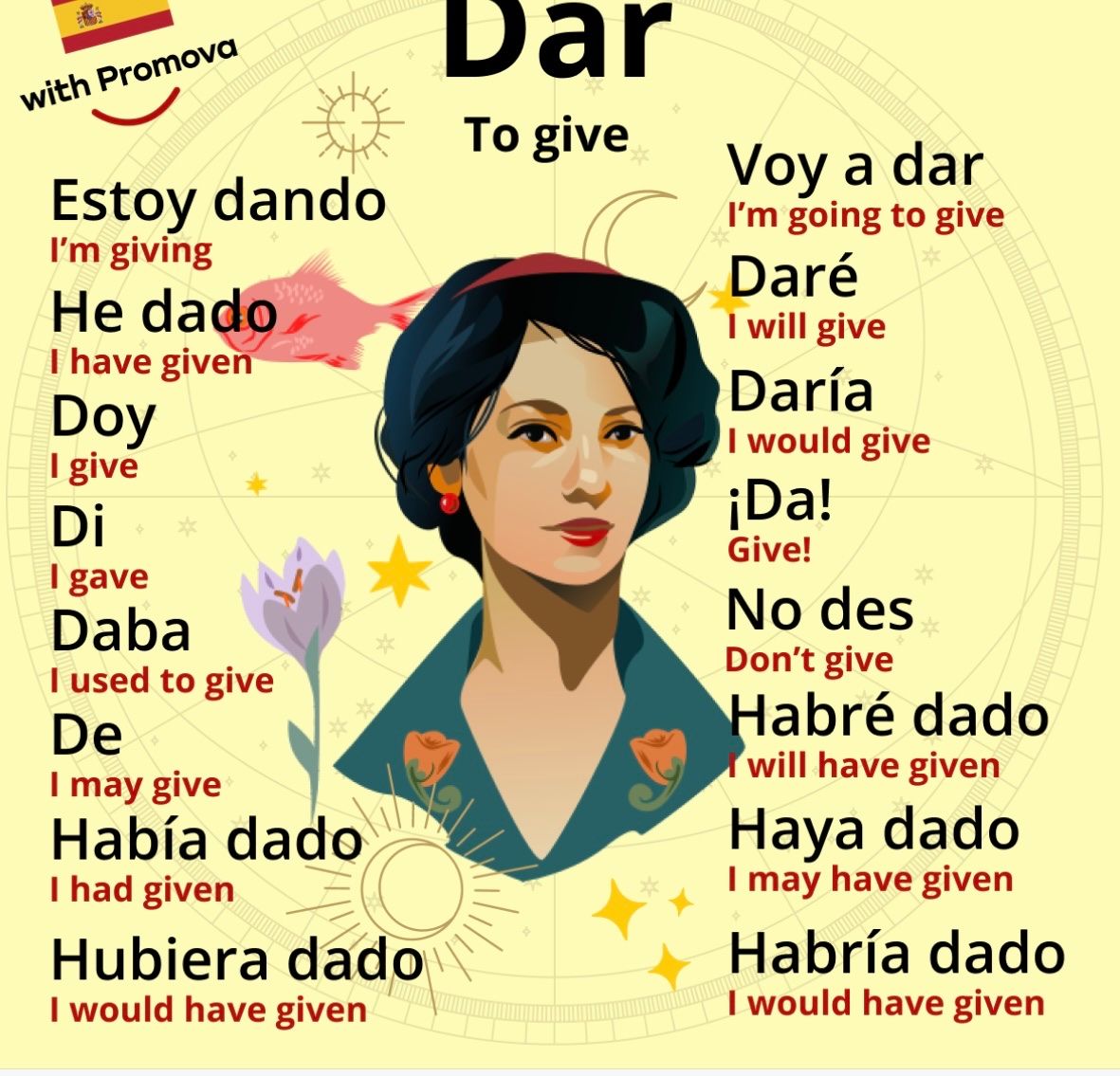
I've loved meeting like-minded people, my age and younger, who have enjoyed these kinds of grammatical gymnastics in classes I've taken in Oaxaca, Guanajuato, and in Spain. I was in my element, and so were they. There's humour and fun in twisted grammatical contortions. It's a wonderful feeling to have a common interest and goal, as I'm sure you've experienced in other settings.
Shyness is the enemy of language-learning
I've overcome the shyness of my youth, and lost all sense of shame or embarrassment about making mistakes. I feel at ease talking in regular day-to-day situations. I can pull together normal, everyday thoughts quite painlessly, even automatically. It's a good feeling and the inevitable mistakes are no big deal. Nobody really cares.
I may get stuck if I'm trying to say longer, more complex sentences, but I can usually come up with an alternate way of expressing what I want. If it sounds awkward it doesn't really matter. You can't be a perfectionist in this business, especially at my age. It's the main idea that's important, the personal interaction, the smiles and the goodwill.
I truly enjoy starting conversations in Spanish with just about anyone. Including this affectionate boy I met at a concert at his grandparents' house.
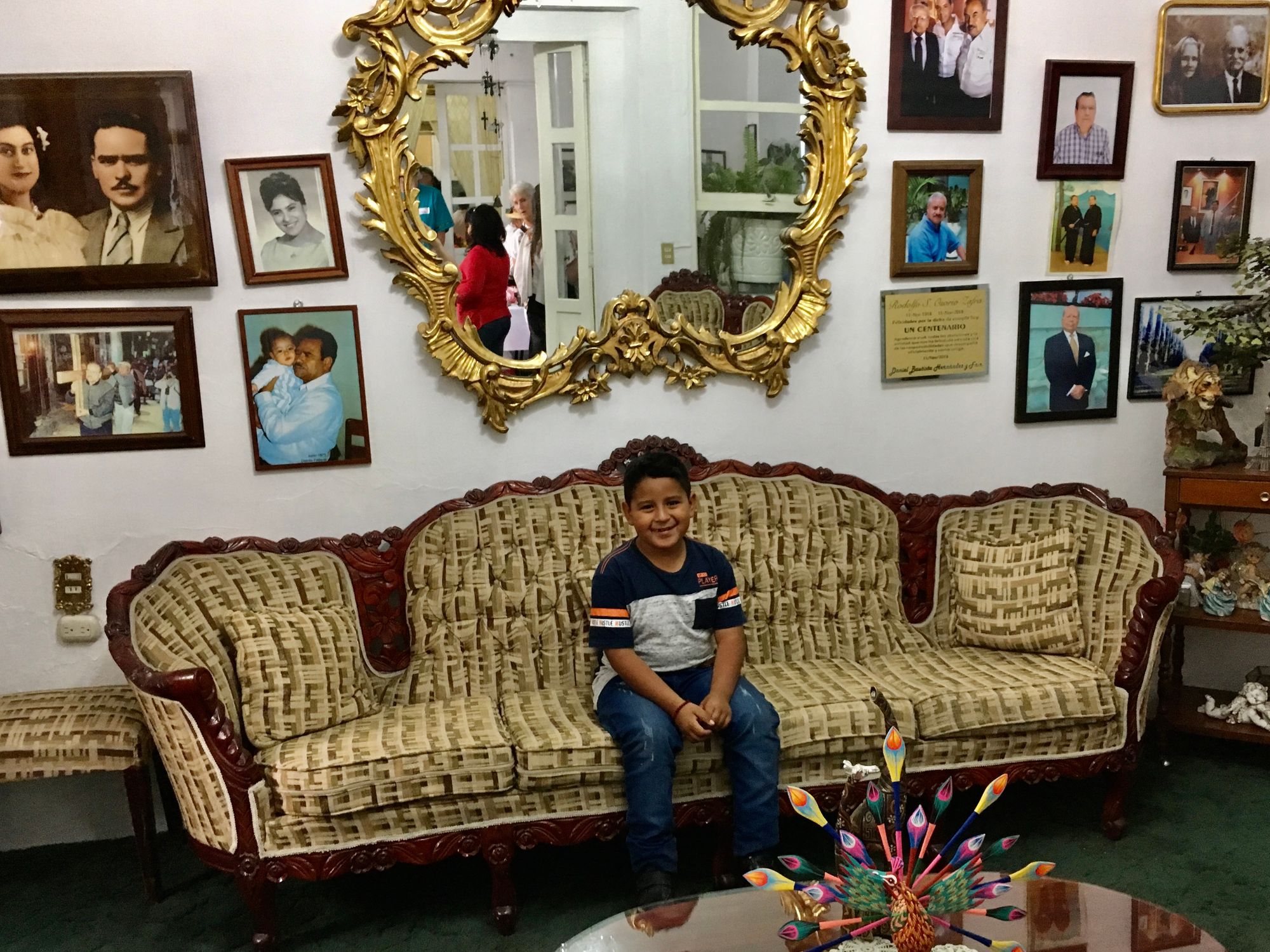
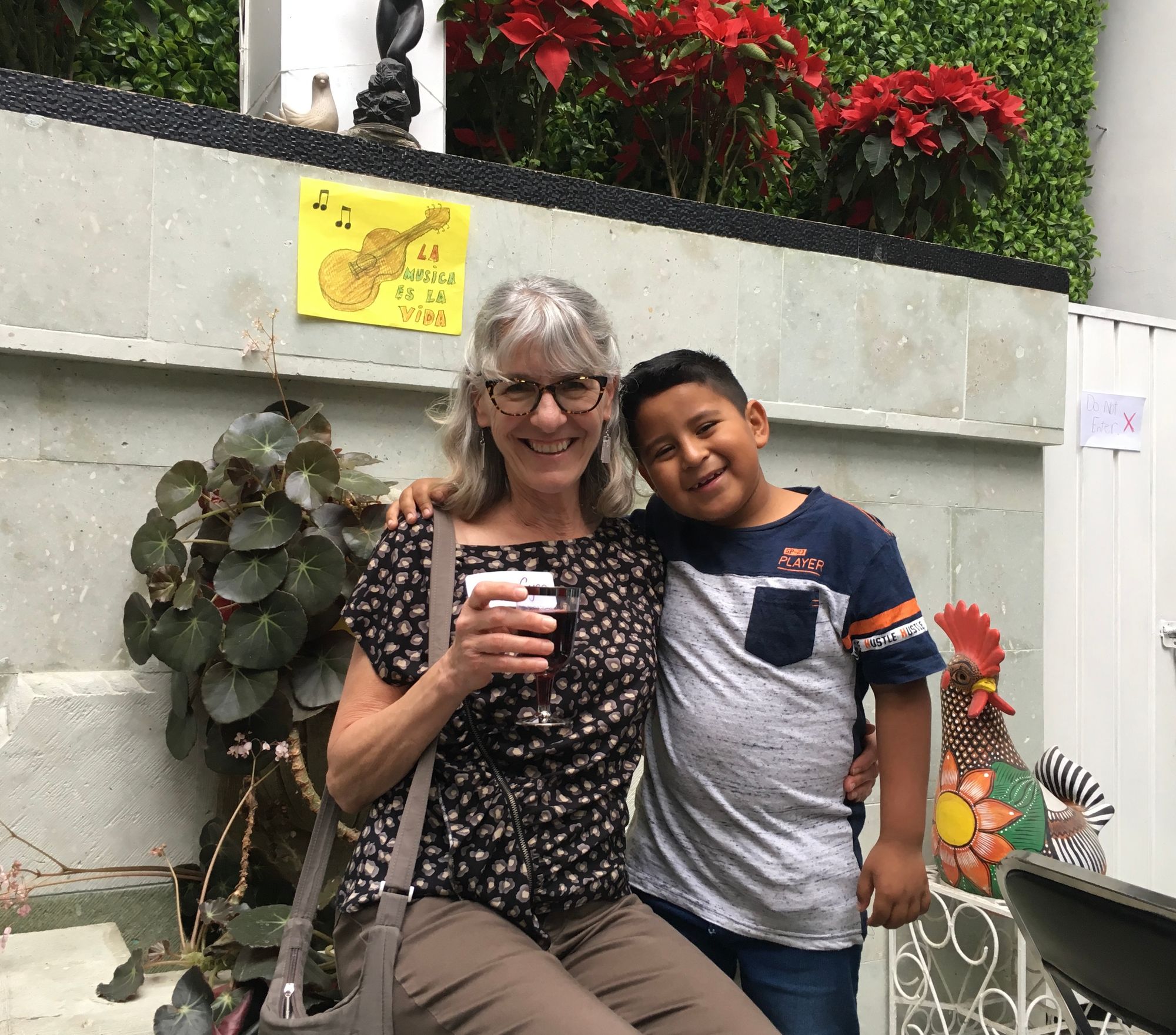
Hispanohablantes are kind. Native speakers usually talk a bit slower and tone down their slang with me. And they always compliment foreigners on our wonderful Español. Even when it's not.
I enjoy conversations with Mexican friends. One-on-one is easy but a big group is a challenge. None of the people in the photo below speak any English, and the after-dinner conversation can be high-speed with multiple topics moving around the table. I focus on my dessert sometimes just to reset my brain.
I first met this family in 2011 through my friend Martha, in the green dress, and have visited them regularly over the years. This picture was taken just last year 2022 in their home in Tlalixtac, near Oaxaca.
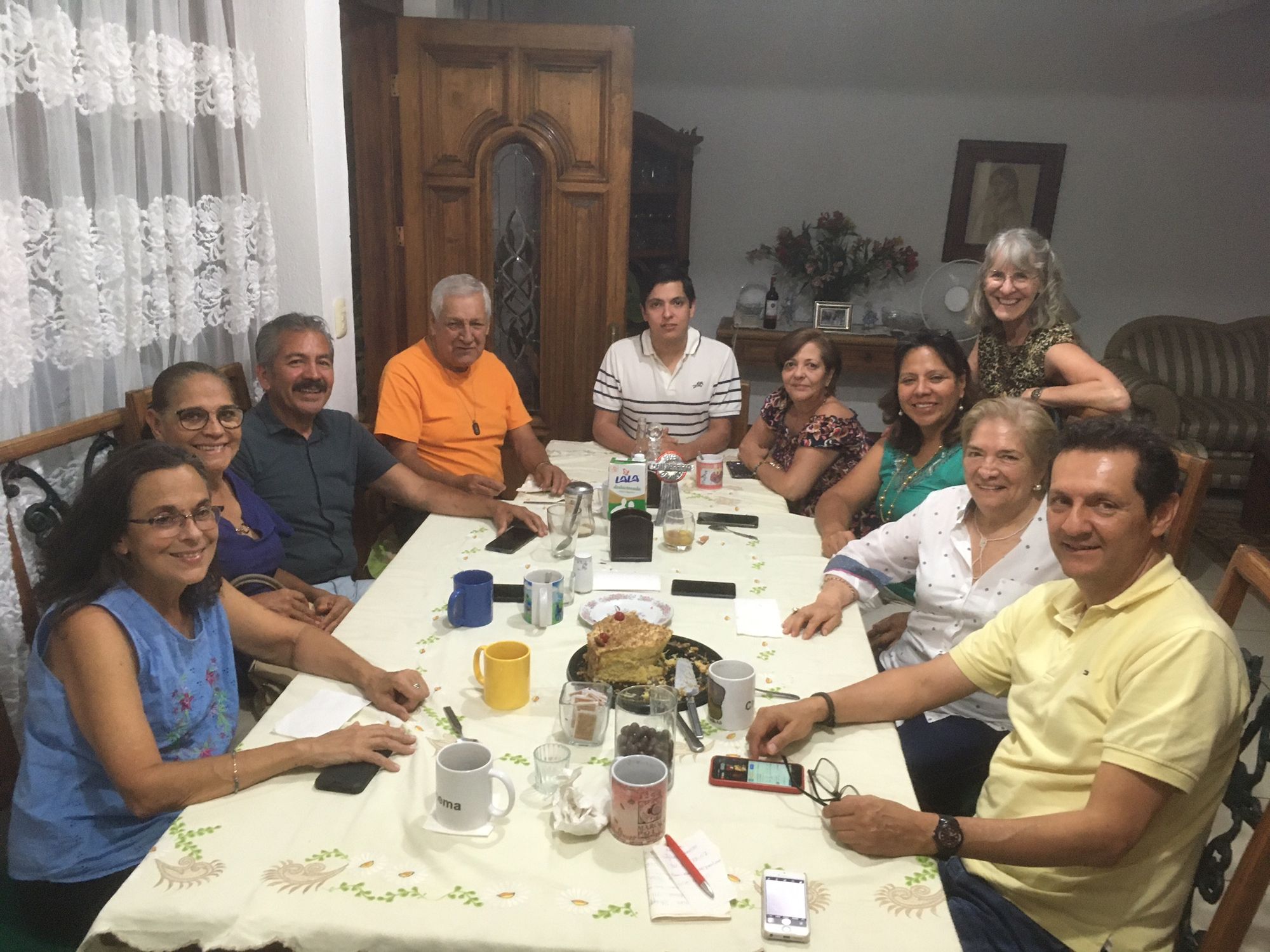
My hobby adds a whole other dimension to the fun of travelling, but also adds a richness at home. Listening to podcasts from Latin American journalists on Radio Ambulante, reading books in Spanish, browsing interesting language videos on YouTube, and exchanging emails with Spanish-speaking friends. I like these solitary activities.
Spanish is like skiing.
The green runs are the easiest everyday conversations. I'm confident and feel like a pro. The black runs are complex sentences with multiple tenses where I can get tongue-tied, and panic, and bail out into the security of English.
I'm not as disciplined as you might think. I don't push myself. I've stuck with this project only because I get a kick out of it, it's what I do.
Sometimes I think it's the study of Spanish that I enjoy the most, more than the actual speaking. The richness of idioms and expressions that have no equivalent in English are fascinating and fun. The differences of vocabulary and pronunciation between Cuba and Spain and Colombia is a study in itself.
I love translation and plan to be a translator in my next life if we get the opportunity for another go-around. Written translation that is. Never simultaneous interpreting, which is in real time and I hear one of the toughest things you can force your brain to do.
How did I learn Spanish?
There isn't any single course that works, I'm sure of that. No matter what they advertise on the internet. I'm using every approach I can think of to coax my brain and mouth to accept Spanish. It's the combination of all these methods that more or less works, eventually.
I'll post a list sometime of the learning strategies I continue to use. Coming soon.
I'm a happy Spanish amateur, too old to turn professional translator in this lifetime, but not yet finished with this hobby. I want to get better.
I'll be landing in Oaxaca this evening, my 10th visit I think, and I'm looking forward to jumping right back into Español and those lively noisy streets.
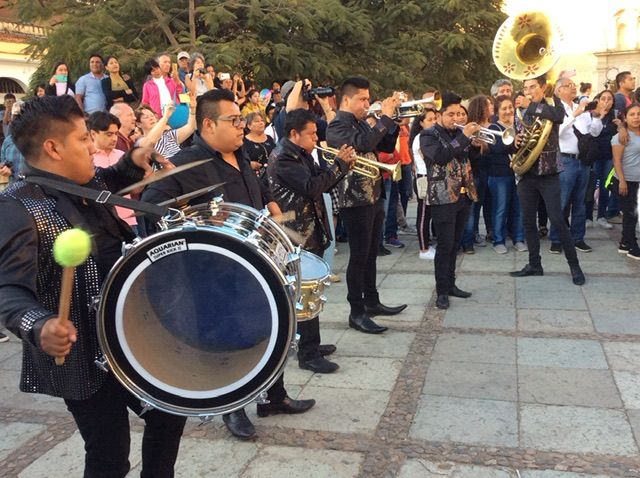
I hope you find lots of time to enjoy whatever hobbies you have, or new ones you might start in 2023. If not a language, then maybe guitar or gardening or chess or yoga or a blog, or watercolours or reading, whatever strikes your fancy. Best of luck with the pastime of your choice.
Thanks for reading about mine.
¡FeliZ Año NueVo!
HaPpY NeW YeaR!!
-Jean
********************************************
P.S. The boys in the photo at the top of this post shyly asked if they could borrow my rented bike one Sunday morning in Oaxaca. They were supposed to do exercise for school and show proof by taking videos to show their teacher. I didn't want to lose the bike but they seemed trustworthy, so I said sure.
They took turns riding down the street on my white bike and got their videos. I got the pleasure of a friendly chat with three polite young Mexicans.

